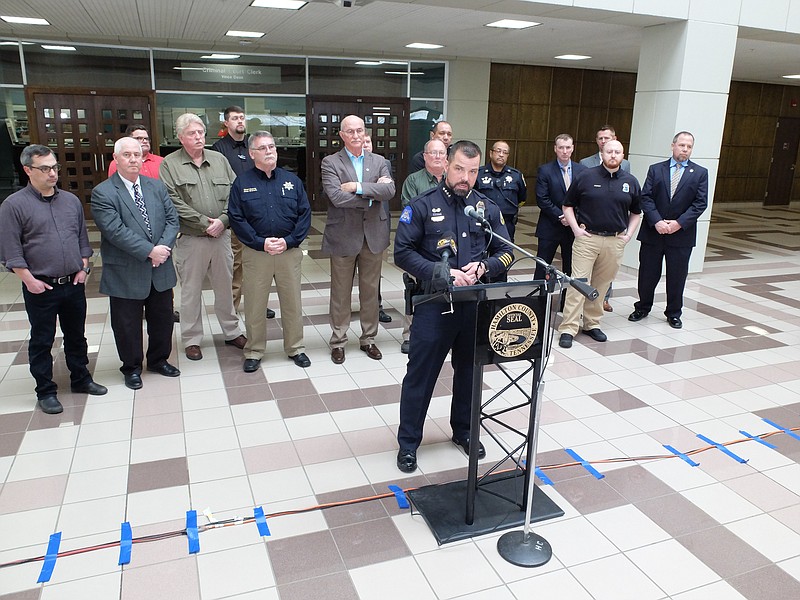A defense attorney for the 31 men accused of being public nuisances in East Lake Courts wants to suppress any mention of the forms that police use to validate people as gang members during a civil trial later this month.
"As grounds, the individuals would show that the gang validation forms submitted [during a 2016 hearing] are hearsay and not subject to any exception," defense attorney Chrissy Mincy wrote in a recent motion.
Mincy will get a chance to argue further during a hearing Tuesday in Hamilton County Criminal Court, and attorneys likely will iron out any other issues then before the case goes to trial on April 17.
Hamilton County District Attorney General Neal Pinkston was unavailable for comment Friday, but his office presumably would be opposed to Mincy's request since prosecutors entered about 40 validation forms as evidence in the case.
Chattanooga police officers use a point system to validate someone as a gang member. Tattoos, self-admittance, and associating with other gang members all have a different value, and a person needs 10 points to be validated as a member. Anything less means you're "associated" with the gang.
In September 2016, Pinkston asked the courts to approve a petition that would restrict specific behaviors from 31 men in two gangs, saying it would give law enforcement another tool to make East Lake Courts safer. Although he got a judge to approve a temporary version of his "gang injunction" that December, Pinkston is going to trial now to make it permanent.
If he succeeds, members of the Grape Street Crips and Gangster Disciples could be fined $50 or spend up to 30 days in jail if they're caught violating a number of listed activities in the neighborhood, such as owning graffiti equipment, drinking alcohol, signaling the arrival of police, possessing guns and drugs or hanging out with other men accused of being gang members.
Defense attorneys, however, have fought Pinkston every step of the way, saying the "gang injunction" is a violation of the First Amendment right to freedom of association that would open the door to illegal police searches. They've said the validation forms are based on rumors and subjective: While they're good intelligence for police officers, they're not credible enough to be presented as evidence in court.
In a different motion that she wants to address Tuesday, Mincy said she still needs prosecutors to give her more evidence that connects the men to specific gang crimes in the East Lake area.
Contact staff writer Zack Peterson at zpeterson@timesfreepress.com or 423-757-6347. Follow him on Twitter @zackpeterson918.
